
Jay Ague
Henry Barnard Davis Memorial Professor of Earth & Planetary Sciences
Earth & Planetary Sciences
Jay Ague studies fluid flows, chemical reactions, mass transfer, and heat transfer in Earth’s crust and upper mantle, with a focus on the metamorphic and igneous rocks comprising the deep roots of mountain belts. The Ague research group integrates fieldwork, chemical and isotopic analyses of rocks and minerals, and numerical simulations. Example research areas include: heat and mass transport by fluid flow through porous and fractured rock; timescales of orogenic events; fluids and arc volcanism; the impact of subsurface fluids on rock rheology and earthquake hazards; geohydrology; the genesis of economic mineral deposits; processes that release and transport greenhouse gases such as carbon dioxide in Earth’s crust; and carbon sequestration.
https://people.earth.yale.edu/profile/jay-ague/about
![]()

Serap Aksoy
Professor of Epidemiology (Microbial Diseases)
School of Public Health(Climate Change and Health, Epidemiology of Microbial Diseases)
Serap Aksoy, PhD, came to Yale as a postdoctoral fellow in 1982 and worked her way to Professor in 2002. From 2002-2010, she headed the Division of Epidemiology of Microbial Diseases. The laboratory at Yale focuses on the development of novel methods to ultimately reduce tsetse populations in the field, or to reduce their ability to transmit disease. Studies in Uganda focus on the epidemiology of Sleeping Sickness disease. Together with BRI and her colleagues at Yale, Dr. Aksoy has been involved in an international training program to expand research capacity in tsetse-transmitted diseases in east Africa. As the EIC of PLOS NTDs, she works to build research and publication capacity for global neglected tropical diseases.
http://publichealth.yale.edu/people/serap_aksoy-1.profile
![]()

Michelle L. Bell
Mary E. Pinchot Professor at the School of the Environment and Professor of Environmental Health
Environmental Health Sciences, School of Public Health (Climate Change and Health)
Dr. Bell’s research investigates how human health is affected by atmospheric systems, including air pollution and weather. Much of this work is based in epidemiology, biostatistics, and environmental engineering. The research is designed to be policy-relevant and contribute to well-informed decision-making to better protect human health.
https://publichealth.yale.edu/people/michelle_bell.profile
![]()

David Bercovici
Frederick William Beinecke Professor and Chair of Earth & Planetary Sciences
Earth & Planetary Sciences
David Bercovici is a specialist on geophysical and geological fluid dynamics and nonlinear science. He focuses his research on mantle convection, lithosphere dynamics and the origin of plate tectonics, hotspots and mantle plumes, and volcanic flows and eruptions. He has used simple analytical models and laboratory models to study geodynamics, and he has contributed original theories to explain scientific questions on such matters as plume heads, plate tectonics and mantle convection. As a graduate student, he earned acclaim for his breakthrough research producing a model of mantle convection that, for the first time, accounted for the nonlinear and three-dimensional nature of convective motions in spherical geometry.
https://people.earth.yale.edu/profile/david-bercovici/about
![]()

Ruth E. Blake
Professor of Earth & Planetary Sciences
Earth & Planetary Sciences
Ruth Blake is professor of Geology & Geophysics, Forestry & Environmental Studies, and Chemical & Environmental Engineering. She is deeply engaged in ocean exploration; her core research has focused on developing new stable isotope tools and geochemical proxies to study extraterrestrial life, ancient ocean temperatures, and the co-evolution of earth and life, with an emphasis on microbial phosphorus cycling and evolution of the marine phosphorus cycle from 3.8 billion years ago to present. She earned her B.S. degree in geology, magna cum laude, from Wayne State University, her M.S. in hydrogeology from the University of Texas, and her Ph.D. in geochemistry from the University of Michigan.
https://people.earth.yale.edu/profile/ruth-e-blake/about
![]()

Mark Bradford
Professor
School of the Environment
Dr. Bradford’s work focuses on the health, biology, ecology and carbon storage potential of forest, grassland and agricultural soils. He am interested in developing knowledge that allows us to predict how environmental change and management will affect the rates of carbon stabilization and decomposition processes, and hence how the size of soil organic carbon stores change in space and time. Such quantitative knowledge is necessary to connect impacts on soils to consequences for society and the environment, and to inform efforts that seek to better manage soils to restore the benefits they provide. The overall goal of his research is to provide the mechanistic understanding and data necessary for reliable prediction of global change impacts on ecosystems, their feedbacks to the carbon cycle-climate system, and to inform the sustainable management of a productive agriculture.

Mark Brandon
Professor of Earth & Planetary Sciences
Earth & Planetary Sciences
The main objective of Brandon’s research is to understand the interplay between accretion, erosion, and wedge growth in shaping the surface of the Earth. His primary research sites are western North America, Kamchatka, New Zealand, Crete, and Apennines. After receiving his B.Sc. in Earth Sciences from the University of California, Santa Cruz, he earned his M.Sc. and Ph.D in Geological Sciences at the University of Washington. His NSERC Postdoctoral Fellowship was completed at the Pacific Geoscience Centre, Canada.
http://campuspress.yale.edu/markbrandon/
![]()

Gary Brudvig
Benjamin Silliman Professor of Chemistry, Yale Energy Sciences Institute Director
Chemistry
Dr. Brudvig’s research aims to define how nature has solved the difficult problem of efficient light-driven, four-electron oxidation of water to O2 and to use this understanding to develop new artificial processes for solar energy conversion. His lab uses spectroscopic, biophysical and molecular biological methods to probe the structure and function of the redox centers, the kinetics and yields of electron-transfer reactions, and the chemistry of water oxidation in photosystem II. The studies on photosystem II provide insight into the design of artificial systems that split water. Toward this goal, they are investigating inorganic model complexes of the tetramanganese active site in photosystem II in collaboration with Professor Crabtree. The synergism between the inorganic and biological chemistry is an important aspect of this research and has yielded the first homogeneous oxomanganese water-oxidation catalyst.
https://chem.yale.edu/people/gary-brudvig
![]()

Ingrid C. Burke
Carl W. Knobloch, Jr. Dean, Professor of Ecosystem Ecology
School of the Environment
Dr. Burke is an ecosystem ecologist whose research has focused on carbon and nitrogen cycling in dryland ecosystems. She received her B.S. in Biology from Middlebury College and her Ph.D. in Botany from the University of Wyoming, and has taught at Colorado State University and the University of Wyoming. Her work with graduate students, postdoctoral associates, and colleagues has addressed how drylands are influenced by land use management, climatic variability, and regional variability. She teaches in the fields of environmental science, ecosystem ecology, and biogeochemistry.
https://environment.yale.edu/profile/burke
![]()
![]()

Xi Chen
Assistant Professor of Public Health (Health Policy) and Assistant Professor in the Institution for Social and Policy Studies; Affiliated Faculty, Department of Economics
Economics
Xi Chen, Ph.D., is an assistant professor of Health Policy, of Global Health, of Economics, and of Faculty of Arts and Sciences at Yale University. He is a faculty fellow at the Yale Institution for Social and Policy Studies, the Yale Climate Change and Health Initiative, the Macmillan Center, the Yale Institute for Network Science, and the Yale-China Association. His research focuses on fetal and early childhood development, population aging and public policies, climate change and health, and quality of life.
http://publichealth.yale.edu/climate/faculty/xi_chen.profiletr
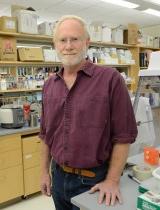
Jamie Emory Childs
Lecturer in Epidemiology (Microbial Diseases)
Epidemiology of Microbial Diseases
Child’s recent interests and research, conducted in collaboration with Dr. Albert Ko, Division Chief at Yale, and Fleur Porter, an MPH candidate, focus on the ecoepidemiology of intra- and inter-specific transmission of leptospires in an urban slum setting in Salvador, Brazil. The Norway rat (Rattus norvegicus) is the principal reservoir host for leptospires causing human disease in Salvador, however, scant knowledge exists on the mechanisms of acquisition, maintenance and shedding of this bacterium by rats. Humans are directly infected by leptospires through contact with environments contaminated with spirochetes shed in the urine of infected rats Defining parameters of the natural history of leptospiral infection within individual rats and within rat populations, coupled with determinations of critical environmental and ecological features underlying the distribution and density of rat populations, will help elucidate risk factors for human infection and disease.
http://publichealth.yale.edu/climate/faculty/james_childs.profile
![]()
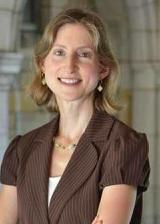
Deborah Coen
Professor
History
Deborah R. Coen is a historian of science whose research focuses on the modern physical and environmental sciences and on central European intellectual and cultural history. She earned an A.B. in Physics from Harvard, an M.Phil. in History and Philosophy of Science from Cambridge, and a Ph.D. in History of Science from Harvard. At Yale she is also a member of the steering committee of the Environmental Humanities Initiative. Her latest book, to appear in 2018, is Climate in Motion: Science, Empire, and the Problem of Scale, the first study of the science of climate dynamics before the computer age. Professor Coen argues that essential elements of the modern understanding of climate arose as a means of thinking across scales of space and time, in a state—the multinational Habsburg Monarchy, a bricolage of medieval kingdoms and modern laws—where such thinking was a political imperative. Linking Habsburg climatology to the political and artistic experiments of late imperial Austria, Climate in Motion grounds the seemingly esoteric science of the atmosphere in the everyday experiences of an earlier era of globalization. Small portions of this research have appeared in The Journal of Modern History, Osiris, The Journal for the History of Ideas, and The Avery Review. In 2018-19, thanks to a Mellon New Directions Fellowship, Professor Coen will be taking a leave from teaching in order to study the physical and social science of climate change. Her goal is to acquire the knowledge and skills necessary to bring history to bear on some of the implicitly historical questions that anthropogenic climate change raises: questions about environmental and social justice, about the rights of future generations, and about the relationship between scientific expertise and traditional forms of knowledge.
https://history.yale.edu/people/deborah-coen
![]()

Nicole Deziel
Assistant Professor of Epidemiology (Environmental Health Sciences), Assistant Professor at the School of the Environment and in Chemical and Environmental Engineering
Epidemiology of Microbial Diseases, School of Public Health (Climate Change and Health, Environmental Health Sciences)
Dr. Nicole Deziel’s research is designed to enhance understanding of the interface between exposure to environmental agents and human disease, including women’s health and children’s health outcomes. She is focused on evaluating, improving, and developing exposure estimates for application in environmental epidemiologic studies. She investigates critical methodologic issues, such as (1) what is the relative contribution of different routes of exposure to an environmental agent, (2) what are the between- and within-participant variability in exposure measurements over time, and (3) how well do surrogate exposure measures, such as questionnaire responses or GIS-based approaches, compare to biological or environmental measurements? She has investigated these questions within the context of several types of pollutants including pesticides, persistent organic pollutants, and polycyclic aromatic hydrocarbons. Dr. Deziel is also investigating how environmental exposures are changing with new techniques for energy production (e.g., hydraulic fracturing) and climate change.
http://publichealth.yale.edu/climate/faculty/nicole_deziel.profile
![]()
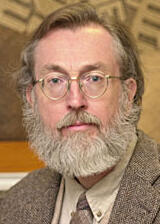
Michael R. Dove
Margaret K. Musser Professor of Social Ecology; Professor of Anthropology, Curator of Anthropology Peabody Museum; Co-Coordinator, Joint F&ES/Anthropology Doctoral Program; Chair Council on Southeast Asian Studies
School of the Environment
Environmental anthropologist, whose work focuses on the environmental relations of local communities, especially in South and Southeast Asia. Over the past 40 years, he has spent more than a dozen years in the field in Asia, carrying out long-term research on human ecology in Borneo and Java, developing government research capacity in Indonesia, and advising the Pakistan Forest Service on social forestry policies. Research and teaching interests include the anthropology of climate change and the cultural and political aspects of natural hazards, disasters, and resource degradation; indigenous environmental knowledge and practice; the study of developmental and environmental institutions, discourses, and movements; and the history and sociology of the environment-related sciences. Current research project is a comparative, post-humanist analysis of view of the environment in South and Southeast Asia.
https://environment.yale.edu/profile/dove
![]()
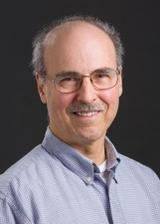
Robert Dubrow
Professor of Epidemiology (Environmental Health Sciences); Faculty Director, Yale Climate Change and Health Initiative
Epidemiology of Microbial Diseases
Dr. Dubrow serves as Faculty Director of the Climate Change and Health Initiative. During the Fall 2017 Term, he is teaching EHS 547a, Climate Change and Public Health. In the Spring 2018 Term he will teach EPH 555a, Practicum in Climate Change, Sustainability, and Public Health. Dr. Dubrow is interested in health co-benefits of climate change mitigation and in utilizing public health science to support legislative, litigative, regulatory, executive, community, and other efforts to mitigate or adapt to climate change and to achieve climate justice.
http://publichealth.yale.edu/climate/faculty/robert_dubrow.bio
![]()
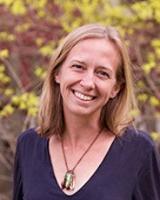
Erika Edwards
Professor
Ecology and Evolutionary Biology
The Edwards Lab consists of botanists and evolutionary biologists. The team is inspired by the diverse ways in which plants look and act, and want to understand how this diversity has evolved. Phylogeny is at the heart of everything the Lab does. Researchers also always try to think as integratively as possible, and keep the whole organism in mind as we dive into minutia.
![]()
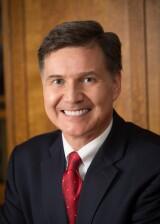
Daniel C. Esty
Hillhouse Professor of Environmental Law and Policy, jointly with Yale Law School; Director of the Center for Environmental Law and Policy
School of the Environment
Professor Esty is the author or editor of ten books and numerous articles on sustainability and environmental issues and the relationships between environmental protection and corporate strategy, competitiveness, trade, globalization, metrics, governance, and development. His prizewinning book (with Andrew Winston), Green to Gold: How Smart Companies Use Environmental Strategy to Innovate, Create Value, and Build Competitive Advantage, argues that pollution control and natural resource management have become critical elements of marketplace success and explains how leading-edge companies have folded environmental thinking into their core business strategies. His most recent book (with P.J. Simmons), The Green to Gold Business Playbook: How to Implement Sustainability Practices for Bottom-Line Results in Every Business Function offers practical advice on how to execute a sustainability strategy across a wide range of businesses and activities. His current research focuses on rethinking environmental policy for the 21st Century and developing metrics for gauging environmental and sustainability performance at the global, national, city, and corporate scales as well as regulatory excellence, climate change and clean energy, and clean energy technology and finance.
https://environment.yale.edu/profiles/expertise/climate-change-and-climate-science
![]()
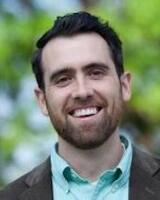
Justin Farrell
Assistant Professor of Sociology
School of the Environment
Justin Farrell is a professor and author at Yale University. He studies environment, culture, politics, elites, and social movements using a mixture of methods from large-scale computational text analysis, qualitative & ethnographic fieldwork, network science, and machine learning. His research has been published by Princeton University Press, the Proceedings of the National Academy of Sciences, Nature Climate Change, the American Sociological Review, Social Problems, among others, and funded by the Environmental Protection Agency and the National Science Foundation. His books and articles have won national awards from the American Sociological Association, American Library Association, used on the floor of the U.S. Senate, and covered by major media outlets such as The Economist, Washington Post, HBO, WIRED, Bloomberg, and the Financial Times.
https://environment.yale.edu/profiles/expertise/climate-change-and-climate-science
![]()

Alexey Fedorov
Professor
Earth & Planetary Sciences
Dr. Fedorov’s work aims to advance our knowledge of ocean and climate dynamics in the contexts of contemporary global warming and past climate changes. In particular, he is interested in the problems of ocean and atmospheric circulation, ocean thermal structure and variability, large-scale ocean-atmosphere interactions, climate variations on scales ranging from several to thousands of years and longer, and climate predictability. Examples of phenomena he studies include El Niño and ocean-atmosphere interaction, decadal climate variability; ocean circulation and thermal structure, ocean role in climate, the Atlantic meridional overturning circulation (AMOC); tropical cyclones - ocean - climate interaction. Some of these phenomena are part of tropical oceanography and meteorology, while others originate in high latitudes. In 2018, Dr. Fedorov’s was named a 2018 Guggenheim Fellow.
https://people.earth.yale.edu/profile/alexey-fedorov/about
![]()
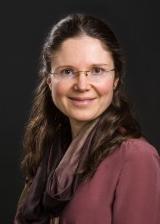
Alison Galvani
Burnett and Stender Families Professor of Epidemiology (Microbial Diseases) and Professor of Ecology and Evolutionary Biology; Director of the Center for Infectious Disease Modeling and Analysis (CIDMA)
Public Health
Alison Galvani earned her PhD in Theoretical Epidemiology from the University of Oxford under the mentorship of Lord Robert May in 2002. Following a two year postdoctoral Miller Research Fellowship at the University of California, Berkeley, Dr. Galvani joined the faculty at the Yale University School of Medicine. She is currently a professor in the Yale School of Public Health, with a secondary appointment at the Department of Ecology and Evolutionary Biology. Dr. Galvani’s research focuses on integrating epidemiology and evolutionary ecology or economics in order to generate predictions that could not be made by any one of these disciplines alone. This interdisciplinary approach has widespread potential for answering evolutionary questions, explaining empirical observations and informing public health policy. Dr. Galvani has applied this approach to the study of HIV, influenza, HPV, Tuberculosis, SARS, and helminth parasites.
https://publichealth.yale.edu/people/alison_galvani.profile
![]()

Jacques Gauthier
Professor
Earth & Planetary Sciences
Gauthier is a vertebrate paleontologist, comparative morphologist, and systematist, and one of the founders of the use of cladistics in biology. Currently he is a Professor of Geology and Geophysics and Ecology and Evolutionary Biology and Curator of Vertebrate Paleontology and Vertebrate Zoology at Yale University. In addition to his theoretical work on systematics and taxonomy, Gauthier continues to study the anatomy and relationships of diapsids, particularly lepidosaurs. His lizard work currently focuses on Scincomorpha, following on a career-long interest in the unusual clade Xantusiidae. He is a principal investigator on the National Science Foundation-funded effort to reconstruct the phylogeny of lizards and snakes (Squamata) using gross anatomy and molecular structure, building on his earlier work in collaboration with Richard Estes and Kevin de Queiroz, which established the most widely accepted phylogeny of the group.
http://peabody.yale.edu/collections/vertebrate-paleontology/jacques-gauthier
![]()
![]()

Bradford S. Gentry
Senior Associate Dean of Professional Practice; Professor in the Practice; Co-Director of the Center for Business & the Environment at Yale; Director of the Research Program on Private Investment and the Environment
School of the Environment
Brad Gentry is the Senior Associate Dean for Professional Practice at the Yale School of Forestry & Environmental Studies, a Professor in the Practice at the Yale School of Management and a Director of the Yale Center for Business and the Environment. Trained as a biologist and a lawyer, his work focuses on strengthening the links between private investment and improved environmental performance. He has worked on land, water, energy, industrial and other projects in over 40 countries for private (GE, Suez Environment, Working Lands Investment Partners), public (UNDP, World Bank, Secretariat for the Climate Change Convention) and not-for-profit (Land Trust Alliance, The Trust for Public Land, the Elmina B. Sewall Foundation) organizations. He holds a BA from Swarthmore College and a JD from Harvard Law School.
https://environment.yale.edu/profile/gentry
![]()
![]()
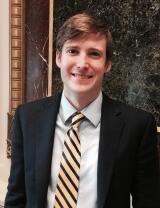
Kenneth Gillingham
Associate Professor of Environmental & Energy Economics
School of the Environment
Professor Gillingham’s research focuses on energy markets and uses a variety of approaches ranging from structural econometric modeling to field experiments to energy-economic system modeling and economic theory. Topics of interest include energy efficiency, new energy technologies, and sustainable transportation. Recent publications have focused on the adoption of solar photovoltaic technology, market failures in household energy efficiency, and the rebound effect in transportation. On-going research includes field experiments on solar and energy efficiency adoption and econometric models of the effects of policies to reduce greenhouse gas emissions from transportation. Other research covers the modeling of energy innovation and technological change, both at the micro-level and in the large-scale energy-climate models used to examine the effects of climate change mitigation policies. His work has been published in top-tier journals such as Science, Nature, PNAS, Marketing Science, Quantitative Economics, Journal of the Association of Environmental & Resource Economists, and the Review of Environmental Economics & Policy.
https://environment.yale.edu/profile/kenneth-gillingham
![]()
![]()
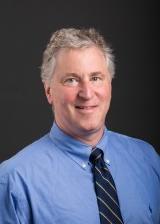
Peter Glazer
Robert E. Hunter Professor of Radiology and Genetics; Chair, Department of Therapeutic Radiology
Radiology & Biomedical Imaging
Dr. Glazer’s research interests include gene targeting and gene therapy, genetic instability in cancer, mutagenesis, DNA repair, and radiation resistance. He is part of the Presidential Task Force of Yale Carbon Charge.
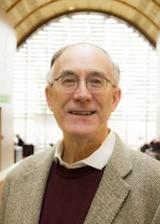
John Grim
Senior Lecturer and Senior Research Scholar
Religious Studies
John Grim is currently a Senior Lecturer and Senior Research Scholar at Yale University teaching courses that draw students from the School of Forestry & Environmental Studies, Yale Divinity School, the Department of Religious Studies, the Institution for Social and Policy Studies, and the Yale Colleges. He is Coordinator of the Forum on Religion and Ecology with Mary Evelyn Tucker, and series editor of “World Religions and Ecology,” from Harvard Divinity School’s Center for the Study of World Religions. In that series he edited Indigenous Traditions and Ecology: the Interbeing of Cosmology and Community (Harvard, 2001). He has been a Professor of Religion at Bucknell University, and at Sarah Lawrence College where he taught courses in Native American and Indigenous religions, World Religions, and Religion and Ecology. His published works include: The Shaman: Patterns of Religious Healing Among the Ojibway Indians (University of Oklahoma Press, 1983) and edited a volume with Mary Evelyn Tucker entitled Worldviews and Ecology (Orbis, 1994, 5th printing 2000), and a Daedalus volume (2001) entitled, “Religion and Ecology: Can the Climate Change?”
http://environment.yale.edu/profile/grim/
![]()
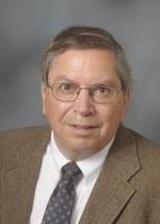
Robert Harms
Henry J. Heinz Professor of History & African Studies
African Studies
Robert Harms, who received his PhD from the University of Wisconsin-Madison in 1978, is the author of River of Wealth, River of Sorrow: The Central Zaire Basin in the Era of the Slave and Ivory Trade (1981), Games Against Nature: An Eco-Cultural History of the Nunu of Equatorial Africa (1988/1999), and The Diligent: Worlds of the Slave Trade (2001). His graduate courses include reading seminars on African environmental history and African agrarian history, and a research seminar on African History.
https://history.yale.edu/people/robert-harms
![]()

Edgar Hertwich
Professor of Industrial Sustainability
School of the Environment
Professor’s Hertwich’s research interests cover climate mitigation, life cycle assessment, sustainable consumption and production, trade and environment, and risk analysis. He is interested in understanding how activities in our society produce environmental pressures, the dynamics in our development that affect these driving forces and their resulting environmental pressures, and alternative courses of action that can reduce these pressures. What is the connection between human activities on the one hand and emissions and resource use on the other hand? What are the implications of our current development path? What do we need to change, both in terms of individual actions and policy frameworks, to achieve a more sustainable development?
https://environment.yale.edu/profile/hertwich/
![]()
![]()
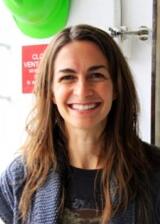
Pincelli Hull
Assistant Professor
Earth & Planetary Sciences
Pincelli Hull is broadly interested in the evolution and ecology of open ocean ecosystems and species over long-time scales, as these are the scales on which species evolve and go extinct and ecosystems collapse and reassemble. Planktonic foraminifera, tiny protists with a calcareous test, play a central role in her research because they are abundant and widespread in modern and ancient seas. This is important as most inhabitants of the open ocean have virtually no fossil record. With foraminifera it is possible examine ecological and evolutionary dynamics across the broad range of times scales, from days to many millennia. Research in her group focuses on understanding open ocean ecosystems through the Cenozoic (the last 65 million years), disentangling the causes and consequences of mass extinctions, and quantifying community response to global change.
https://people.earth.yale.edu/profile/pincelli-hull/about
![]()
![]()
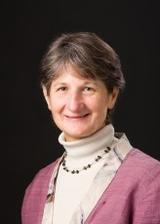
Debbie Humphries
Clinical Instructor in Epidemiology (Microbial Diseases)
Public Health (Climate Change and Health)
Epidemiology of Microbial Diseases
Dr. Humphries has a broad background in public health research and practice. She has been a consultant in the areas of diet and physical activity behavior change, sustainability of community health programs,
Her research addresses interactions between nutrition and infectious disease, as well as programmatic approaches to improving public health. This work has taken her to Asia and Africa where she has studied environmental factors and intestinal helminth infections and their relationship to anemia as well as effectiveness of intervention programs. She is currently collaborating on a longitudinal study to characterize parasite and host factors affecting response to deworming in Ghana.
https://publichealth.yale.edu/climate/faculty/debbie_humphries.profile
![]()
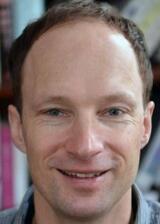
Walter Jetz
Professor of Ecology and Evolutionary Biology; School of the Environment
Ecology and Evolutionary Biology
Walter Jetz’work is interdisciplinary and combines elements of biogeography, community ecology, landscape ecology, macroecology, global change ecology, evolution, comparative biology, biodiversity informatics and conservation. His lab use mostly terrestrial vertebrates and plants as study systems. In its sum, the research attempts to integrate across scales of geography and ecological organization - from global to local assemblages.
![]()
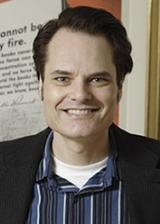
Dan M. Kahan
Elizabeth K. Dollard Professor of Law and Professor of Psychology
Law School
Kahan’s primary research interests are risk perception, science communication, and the application of decision science to law and policymaking. He is a member of the Cultural Cognition Project, an interdisciplinary team of scholars who use empirical methods to examine the impact of group values on perceptions of risk and related facts. In studies funded by the National Science Foundation, his research has investigated public disagreement over climate change, public reactions to emerging technologies, and conflicting public impressions of scientific consensus.
https://law.yale.edu/dan-m-kahan
![]()
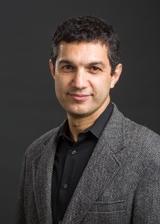
Kaveh Khoshnood
Associate Professor
Epidemiology of Microbial Diseases, Public Health (Climate Change and Health)
Kaveh Khoshnood, Ph.D. is an Associate Professor and Director of Undergraduate Studies at the Yale School of Public Health and core faculty member of the Yale Council on Middle East Studies. He is co-founder of Yale Violence and Health Study Group and a Steering Committee member of the Program on Conflict, Resiliency and Health at the Yale McMillan Center. Dr. Khoshnood is trained as an infectious disease epidemiologist and has more than two decades of domestic and international experience in HIV prevention research among drug users and other at risk populations, including its ethical aspects.
http://publichealth.yale.edu/people/kaveh_khoshnood.profile
![]()
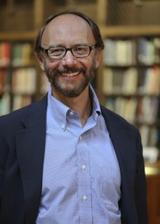
Martin Klein
Senior Advisor, Dean’s Office; Director, InnovateHealth Yale; Executive Director, Yale Climate Change and Health Initiative
Public Health (Climate Change and Health)
Martin Klein, Ph.D., M.P.H. is the Senior Advisor to the dean of the Yale School of Public Health. He is also the founder and Director of InnovateHealth Yale, a program in social impact and entrepreneurship and the co-founder and Executive Director of the Yale Climate Change and Health Initiative. He previously served as the Associate Dean for Development and External Affairs at the Yale School of Public Health, and was responsible for the offices of development, alumni relations, and communications. Martin came to the School from Yale’s Graduate School of Arts and Sciences where he was Associate Dean for Student Services and Administrative Operations. Prior to joining Yale, he was the Associate Dean for Primary Care at New York Medical College, where he co-founded and co-led the Center for Primary Care Education and Research. He was an Assistant Professor of Community and Preventive Medicine and taught a variety of topics, including managed care, medical informatics, and physician communication skills.
http://publichealth.yale.edu/climate/faculty/m_klein.profile
![]()
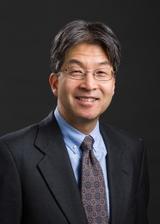
Albert Icksang Ko
Department Chair and Professor of Epidemiology (Microbial Diseases) and of Medicine (Infectious Diseases)
Epidemiology of Microbial Diseases
Professor Ko’s research centers on the health problems that have emerged as a consequence of rapid urbanization and social inequity. He coordinates a research and training program on urban slum health in Brazil and is conducting prospective community-based studies on rat-borne leptospirosis, dengue, meningitis and respiratory infections. His research particularly focuses on understanding the transmission dynamics and natural history of leptospirosis, which is as a model for an infectious disease that has emerged in slum environments due to the interaction of climate, urban ecology and social marginalization. Current research combines multidisciplinary epidemiology, ecology and translational research-based approaches to identify prevention and control strategies that can be implemented in slum communities. More recently, Dr. Ko and his team has mobilized the public health research capacity at their site in the city of Salvador, Brazil to investigate the on-going outbreak of Zika virus infection and microcephaly. Dr. Ko is also Program Director at Yale for the Fogarty Global Health Equity Scholars Program which provides research training opportunities for US and LMIC post and pre-doctoral fellows at collaborating international sites.
https://publichealth.yale.edu/climate/faculty/albert_ko.profile
![]()
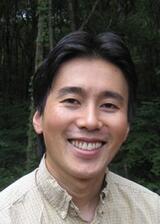
Jun Korenaga
Professor
Earth & Planetary Sciences
Jun Korenaga’s research interest has been centered on the evolution of Earth as a platform for the emergence of life and its subsequent evolution in the solar system. He places a particular emphasis on the dynamics of Earth’s mantle, because of its parental nature to the continental and oceanic crust, its thermal and chemical interaction with the core, and its potential role in the evolution of the atmosphere and oceans. His currently ongoing projects span the synergy of experimental rock mechanics and geodynamical modeling, the physics and chemistry of protoplanetary disks, early Earth geodynamics and environments, and the seismic imaging of the deep Earth using USArray.
https://people.earth.yale.edu/profile/jun-korenaga/about
![]()
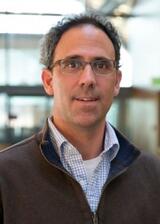
Matthew J. Kotchen
Professor of Economics
School of the Environment
Matthew Kotchen is a professor of economics at Yale University, with a primary appointment is in the Yale School of Forestry & Environmental Studies and affiliated appointments in the Yale School of Managementand the Department of Economics. He is also a faculty research fellow at the National Bureau of Economic Research (NBER). Professor Kotchen’s research interests lie at the intersection of environmental and public economics and policy. Ongoing projects employ both theoretical and empirical methods covering a range of topics, including energy, climate change, “green” markets, corporate social responsibility, development, and applied game theory. Kotchen joined the Yale faculty in 2009 and has held previous and visiting positions at Williams College, University of California (Santa Barbara and Berkeley), Stanford University, and Resources for the Future. Professor Kotchen recently served as Deputy Assistant Secretary for Environment and Energy at that U.S. Department of the Treasury in Washington, DC. Kotchen also serves on the Environmental Economics Advosory Board of Science Advisory Board of the U.S. Environmental Protection Agency and has acted as the visiting chief economist of the Environmental Defense Fund (EDF).
http://environment.yale.edu/profile/kotchen/
![]()
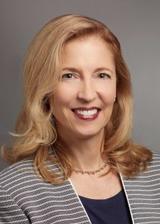
Ann Kurth
Dean, School of Nursing, Linda Koch Lorimer Professor of Nursing and Professor of Epidemiology
Epidemiology of Microbial Diseases
Dr. Kurth is an elected Fellow of the National Academy of Medicine and a member of the 2014-2018 US Preventive Services Task Force, which sets screening and primary care prevention guidelines for the United States. Dr. Kurth is the 2018–2020 chair of the Consortium of Universities for Global Health. An epidemiologist and clinically-trained nurse-midwife, Dr. Kurth’s research focuses on HIV/reproductive health and global health system strengthening. Her work has been funded by the National Institutes of Health (NIAID, NIDA, NIMH, NICHD), the Bill & Melinda Gates Foundation, UNAIDS, CDC, HRSA, and others, for studies conducted in the United States and internationally.
https://publichealth.yale.edu/climate/faculty/ann_kurth.profile
![]()
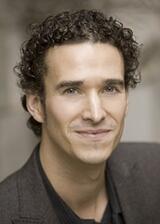
Douglas Kysar
Joseph M. Field ’55 Professor of Law
Law School
Douglas Kysar is the Joseph M. Field ’55 Professor of Law at Yale Law School. His teaching and research areas include torts, environmental law, climate change, products liability, and risk regulation. He teaches the course “The Past, Present and the Future of Global Climate Change: Law and Policy”.
https://law.yale.edu/douglas-kysar
![]()
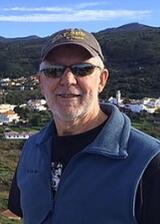
William Lauenroth
Professor in the Practice
School of the Environment
Professor Lauenroth studies ecosystems in dry areas. His past work has focused largely on grasslands and his current research concentrates on questions associated with mixtures of grasses and shrubs or on ecosystems dominated by shrubs. His specific research interests include: plant population and community ecology; ecohydrology, ecosystem ecology, and the effects of projected climate change on plant communities and ecosystems. Within these general topics, he and his students have worked on demography, controls on recruitment, resource partitioning between grasses and woody plants, responses to and recovery from disturbances ranging from small to large spatial scale including grazing by domestic livestock. Another branch of his research falls within the realm of ecosystem ecology and has included above and belowground net primary production, carbon budgets, and water balance. He uses simulation modeling as a key exploratory and analysis tool across all of the organizational and spatial scales of his research. Professor Lauenroth’s current research is on big sagebrush plant communities and ecosystems in western North America.
https://environment.yale.edu/profile/william-lauenroth/
![]()
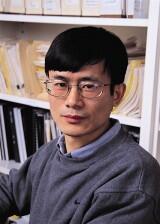
Xuhui Lee
Sara Shallenberger Brown Professor of Meteorology, Director, YIBS/Yale Center for Earth Observation
School of the Environment
Professor Lee’s research and teaching concern the interactions between the terrestrial biosphere, the atmosphere and anthropogenic drivers. His areas of interest include boundary-layer meteorology, micrometeorological instrumentation, remote sensing, and carbon cycle science. One focus of his research activity is on greenhouse gas fluxes in the terrestrial environment, including forests, cropland and lakes. Other ongoing projects deal with isotopic tracers in the cycling of carbon dioxide and water vapor, biophysical effects of land use on the climate system, and urban climate mitigation. He is Sara Shallenberger Brown Professor of Meteorology, Director of the Yale Center for Earth Observation, Program Coordinator of the Yale-Tsinghua dual degree program, and Editor-in-Chief for the international journal Agricultural and Forest Meteorology. He is recipient of the 2015 Award for Outstanding Achievement in Biometeorology from the American Meteorological Society.
https://environment.yale.edu/profile/lee
![]()
![]()
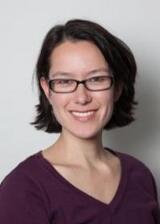
Kanani Lee
Associate Professor
Earth & Planetary Sciences
Kanani’s group studies the physical and chemical properties of planetary materials including, but not limited to, the crystal structures and phase diagrams at high-pressure and -temperature conditions. The knowledge of materials at deep interior conditions is key to understanding the formation and evolution of the Earth and planets in general. This, in turn, generates insights on how planet’s habitability, or lack thereof, evolves.
https://people.earth.yale.edu/profile/kanani-lee/about
![]()

Anthony Leiserowitz
Senior Research Scientist and Director of the Yale Program on Climate Change Communication (YPCCC)
School of the Environment
Anthony Leiserowitz is an expert on public opinion and public engagement with the issues of climate change and the environment. His research investigates the psychological, cultural, and political factors that influence environmental beliefs, attitudes, policy support, and behavior. He conducts research at the global, national, and local scales, including studies in the United States, China, and India. He has served as a consultant to the John F. Kennedy School of Government (Harvard University), the United Nations Development Program, the Gallup World Poll, and the World Economic Forum. He is a board member of the KR Foundation and serves as an advisor to the UN Foundation, the Ad Council, Years of Living Dangerously, and the China Center for Climate Change Communication. He is also the host of Climate Connections, a daily national radio program and podcast. Twitter: @ecotone2, @YaleClimateComm, @CC_Yale
http://environment.yale.edu/profile/leiserowitz
![]()
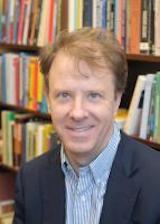
Joseph Manning
William K. & Marilyn Milton Simpson Professor of Classics & History; Senior Research Scholar, Law School
History
Manning specializes in Hellenistic history with particular focus on the legal and economic history of Ptolemaic Egypt. His interests lie in governance, reforms of the state, legal institutions, formation of markets, and the impact of new economic institutions (coinage, banking) on traditional socio-economic patterns in the ancient world. He is also deeply concerned with Papyrology, the interpretation of ancient sources, and bringing to bear the historical social sciences, particularly Economic Sociology and economic and legal theory, to ancient history.He has published three monographs: The Hauswaldt Papyri. A Family Archive from Edfu in the Ptolemaic Period. Demotische Studien, Vol. 12. Würzburg, 1997, Land and power in Ptolemaic Egypt. The structure of land tenure 332-30 BCE. Cambridge University Press, 2003, and The last pharaohs. Egypt under the Ptolemies, 305 – 30 BC. Princeton University Press, 2009 (appearing in October). He has also edited (with Ian Morris, Stanford University) a volume on economic history: The Ancient Economy: Evidence and Models. Stanford University Press, 2005, and Law and society in Egypt from Alexander to the Arab Conquest (330 BC-640 AD. Co-edited with J.G. Keenan & Uri Yiftach. Cambridge University Press.His current projects include the writing of a history of the Hellenistic world for the new University of Edinburgh Greek history series and an economic history of the Mediterranean world in the first millennium BCE for Princeton University Press.Before coming to Yale, Manning taught for 12 years at Stanford University and two years at Princeton University. Manning is a Professor in both the Classics and the History Departments at Yale, and a Senior Research Scholar at Yale Law School. He is a collaborative member of Yale’s Program in Economic History. He received his B.A. from Ohio State, and his M.A. and Ph.D. from the University of Chicago.
https://history.yale.edu/people/joseph-manning
![]()
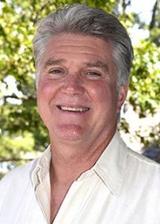
Rodrick McIntosh
Clayton Stephenson/Yale Class of 1954 Professor of Anthropology
African Studies
McIntosh’s major interests are in African and Old World comparative prehistory, intellectual history of prehistoric archaeology, ethnicity and specialization and the origin of authority in complex society, urbanism, geomorphology and palaeoclimate, international art market, prehistoric symbols and ideology.
https://anthropology.yale.edu/people/roderick-mcintosh
![]()
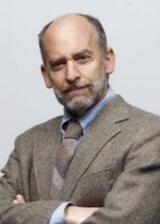
Robert O. Mendelsohn
Edwin Weyerhaeuser Davis Professor of Forest Policy; Professor of Economics; and Professor, School of Management
School of the Environment
Professor Mendelsohn has written over one hundred peer-reviewed articles and edited six books. The focus of his research has been the valuation of the environment. He has developed methods to value natural ecosystems including coral reefs, old-growth forests, non-timber forest products, ecotourism, and outdoor recreation. He has also developed methods to value pollution including emissions of criteria pollutants (such as particulates and sulfur dioxide) and hazardous waste sites. His most recent work values the impacts of greenhouse gases, including the effects of climate change on agriculture, forests, water resources, energy, and coasts. This research carefully integrates adaptation into impact assessment and has recently been extended to developing countries around the world. He has also been involved in studies of nonrenewable resources, forest management, and specifically carbon sequestration in forests.
https://environment.yale.edu/profile/mendelsohn/
![]()
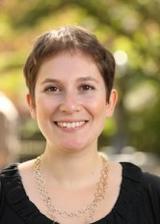
Lisa Messeri
Assistant Professor
Anthropology
Lisa Messeri’s research focuses on the practices, imaginaries, and influences of contemporary science and technology. She is interested in how scientists transform our understanding of what it means to be in the world. Her research asks how the planetary imagination developed by scientist looking outward might be turned inward and used to comprehend Earth on a planetary scale, necessary for confronting today’s environmental and political crises. Currently, she is investigating the re-emerging technology of virtual reality. As a technology of immersion, VR promises to transport us to existing and fictitious places. This research is supported by an NSF Scholars Award, and she will be conducting ethnographic fieldwork in Los Angeles to study how the particular mix of entertainment, academic research, and industry development shape VR and its attending community.
![]()
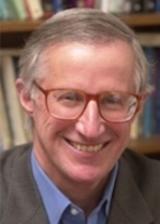
William Nordhaus
Sterling Professor of Economics and Professor of Forestry & Environmental Studies
Economics
Nordhouse is the author of many books, among them Invention, Growth and Welfare, Is Growth Obsolete?, The Efficient Use of Energy Resources, Reforming Federal Regulation, Managing the Global Commons, Warming the World, and (joint with Paul Samuelson) the classic textbook, Economics, whose nineteenth edition will be published in 2009. His research has focused on economic growth and natural resources, the economics of climate change, as well as the resource constraints on economic growth. Since the 1970s, he has developed economic approaches to global warming, including the construction of integrated economic and scientific models (the DICE and RICE models) to determine the efficient path for coping with climate change, with the latest vintage, DICE-2007, published in A Question of Balance (Yale University Press, 2008).
https://economics.yale.edu/people/william-d-nordhaus
![]()

Alan Organschi
Senior Critic in Architectural Design and a Lecturer in Building Technology
Architecture
Alan Organschi is design principal and partner at Gray Organschi Architecture in New Haven, a firm recognized nationally for its residential, institutional, and infrastructural design. He is also the principal of JIG Design Build, an offshoot of his work at Gray Organschi Architecture that specializes in the prototyping, fabrication, and installation of building components and systems. Organschi and his partner, Elizabeth Gray, were honored in 2012 by the American Academy of Arts and Letters with an Arts and Letters Award in Architecture and by the American Institute for Architecture with a National Award in Housing for their design of the Fairfield Jesuit Center. In addition to writing and lecturing on construction technology in design, Organschi is a member of the steering committee of the Cities and Climate Change Network, an international consortium of scientists, policy-makers, and design practitioners engaged in interdisciplinary research and the implementation of global projects in carbon mitigation and climate adaptation. He is a contributing author and editorial board member of the upcoming book Mitigating Climate Change: The Emerging Face of Modern Cities. His ongoing research explores the use of new wood technologies in mid-rise, high-density housing and infrastructure. Prior to teaching at Yale, Organschi taught at Wesleyan University and, since 2010, has served as a visiting professor in the graduate design program at the Roger Williams University School of Architecture, Art and Historic Preservation.
https://www.architecture.yale.edu/faculty/402-alan-organschi
![]()

Michael Oristaglio
Senior Research Scientist of Earth & Planetary Sciences
Earth & Planetary Sciences
Michael Oristaglio is director of the Energy Studies Multidisciplinary Academic Program in Yale College. From September 2012 to June 2016, he was executive director of Yale Climate & Energy Institute, which was created in 2009 to promote multidisciplinary research at Yale on climate change and its links to modern energy use. The institute’s programs included postdoctoral fellowships, research seed grants, workshops, and an annual conference. Nearly 80 faculty members across the university led these activities, with many more participating through collaboration or attendance. The institute helped to launch the Yale Energy Sciences Institute, which focuses on renewable energy and carbon management; the Yale Climate Change and Health Initiative at Yale School of Public Health; the Yale Climate and History Initiative, a joint effort with the Whitney Humanities Center; and the Energy Studies program. After fulfilling its startup mission, the institute closed on June 30, 2016. Michael has B.S. and M.S. degrees from Yale in geology & geophysics, and a D.Phil. in geophysics from Oxford. He returned to Yale in 2009 as a senior research scientist in the Department of Geology & Geophysics, after a long career as an applied Earth scientist, developing remote sensing technology for the petroleum industry and for civil engineering with Schlumberger.
https://people.earth.yale.edu/profile/michael-oristaglio/about
![]()
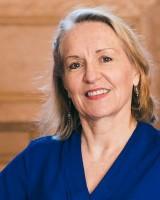
Catherine Panter-Brick
Bruce A. and Davi-Ellen Chabner Professor of Anthropology, Health, and Global Affairs and Professor of Public Health
Anthropology and Public Health
Catherine Panter-Brick, MA, MSc, D.Phil, is a medical anthropologist, trained in human biology and the social sciences. She directs the Program on Conflict, Resilience, and Health at the MacMillan Center for International and Area Studies, and the Anthropology Program on Stress and Family Resilience. She is also the Senior Editor (Medical Anthropology) of the interdisciplinary journal Social Science & Medicine. Panter-Brick holds a joint appointment in the Department of Anthropology and the Jackson Institute for Global Affairs, and a secondary appointment at the School of Public Health. She actively serves on the Steering Committee of the Yale Women’s Faculty Forum (WFF) and the Global Health Initiative (GHI). Prior to coming to Yale, she was a Professor of Anthropology at Durham University and a Fellow at St Hugh’s College, Oxford University. Her current research focuses on youth in global adversity, addressing issues of risk and resilience in contexts of poverty, disease, famine, armed conflict, and social marginalization. She has directed over 40 interdisciplinary research and evaluation projects in Afghanistan, Ethiopia, the Gambia, Jordan, Nepal, Niger, Pakistan, Saudi Arabia, Tanzania, and the United Kingdom. Her teaching at Yale includes interdisciplinary courses on global health, equity, and mental health, and seminar classes on violence, resilience, and humanitarian interventions.
https://anthropology.yale.edu/people/catherine-panter-brick
catherine.panter-brick@yale.edu
![]()
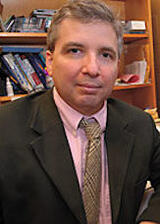
Jeffrey Park
Professor of Earth & Planetary Sciences
Earth & Planetary Sciences
Jeffrey Park has been a faculty member in the Department of Geology and Geophysics at Yale University since 1986. Born in Los Angeles and raised in Orange County, California, Jeffrey was introduced to seismology when tossed from his bed by the 1971 Sylmar earthquake. Jeffrey majored in Physics as an undergraduate at Princeton but did his senior thesis in geophysics, looking for evidence that the great 1977 Sunda earthquake had measurably excited Earth’s Chandler Wobble. Jeffrey earned his PhD at the Scripps Institution of Oceanography in 1985, developing computer algorithms for the coupling of seismic free oscillation and for multiple-taper spectrum analysis. Jeffrey returned to Princeton as a postdoc for 1.5 years, working on free-oscillation coupling problems, and getting introduced to paleoclimate time series by a grad student named Timothy Herbert, Yale Class of 1979. As a faculty member at Yale, Jeffrey continued research in free oscillations, seismic wave scattering by elastic anisotropy, time series of paleoclimate and historical temperature data, and the plate tectonics of Kamchatka and Italy. He seeks answers to questions such as, why does Kamchatka have the most active subduction-related volcano on Earth?, and why does the Tower of Pisa lean?
https://earth.yale.edu/people/jeffrey-park
![]()
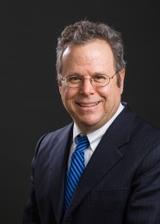
Rafael Perez-Escamilla
Professor of Public Health (Social and Behavioral Sciences); Director, Office of Public Health Practice; Director, Global Health Concentration
Epidemiology of Microbial Diseases
Rafael Perez-Escamilla is Professor of Epidemiology & Public Health, Director of the Office of Public Health Practice, and Director of the Global Health Concentration at the Yale School of Public Health. His global public health nutrition and food security research program has led to improvements in breastfeeding programs, iron deficiency anemia among infants, household food security measurement and outcomes, and maternal, infant and young child community nutrition education/counselling programs. His health disparities research involves assessing the impact of community health workers at improving behavioral and metabolic outcomes among Latinos with type 2 diabetes. He has published over 200 research articles, 2 books, and numerous journal supplements, book chapters, and technical reports. He is a member of the U.S. National Academies of Sciences, Engineering and Medicine (NASEM) Food and Nutrition Board. He has been a senior advisor to maternal-child community nutrition programs as well as household food security measurement projects funded by WHO, PAHO, UNICEF, FAO, UNESCO, UNDP, CDC, USDA, USAID, The World Bank, the Gates Foundation, and the Governments of Mexico, Brazil, and Colombia. He obtained his BS in Chemical Engineering from the Universidad Iberoamericana in Mexico City and his MS in Food Science and his PhD in Nutrition from the University of California at Davis.
https://publichealth.yale.edu/climate/faculty/rafael_perez-escamilla.pro…
rafael.perez-escamilla@yale.edu
![]()
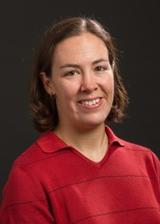
Virginia Pitzer
Associate Professor of Epidemiology (Microbial Diseases); Co-director, Public Health Modeling Concentration
Epidemiology of Microbial Diseases
Virginia Pitzer, joined the Yale School of Public Health as an assistant professor in 2012. She earned her Sc.D. in Epidemiology from the Harvard School of Public Health in 2007, and was a postdoctoral research fellow at Princeton (Department of Ecology and Evolutionary Biology) and a postdoctoral fellow in the Research and Policy for Infectious Disease Dynamics (RAPIDD) program at the Fogarty International Center of the National Institutes of Health prior to coming to Yale. Pitzer’s work focuses on mathematical modeling of the transmission dynamics of imperfectly immunizing infections and how interventions such as vaccination, improved treatment of cases, and improvements in sanitation affect disease transmission at the population level. Her primary research is in rotavirus, (one of the leading causes of severe diarrhea in children in developed and developing countries) for which two new vaccines have been recently introduced. She is also interested in the spatiotemporal dynamics of respiratory syncytial virus and evaluating control options for typhoid fever. Her paper Demographic Variability, Vaccination, and the Spatiotemporal Dynamics of Rotavirus Epidemics appeared in Science magazine in 2009.
https://publichealth.yale.edu/climate/faculty/virginia_pitzer.profile
![]()
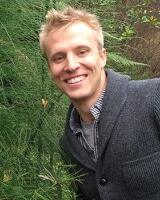
Noah Planavsky
Assistant Professor of Earth & Planetary Sciences
Earth & Planetary Sciences
Noah Planavsky studies the connections between the evolution of Earth-system processes, biological innovation, and ecosystem change—foremost in Earth’s early history. His research integrates field, petrographic, and geochemical work. The protracted rise of oxygen over several billion years dramatically changed Earth’s surface environments. However, the current picture of Earth’s redox evolution is still painted with only broad strokes. A central theme of his research has been trying to piece together the history and effects of Earth’s oxygenation. With that end goal in mind, he is currently working on coupling paleoredox proxies in Precambrian sedimentary rocks, calibrating novel metal isotopes systems in modern aqueous systems, and untangling the distribution and diagenetic history of traces metals in sedimentary rocks.
https://people.earth.yale.edu/profile/noah-planavsky/about
![]()
![]()
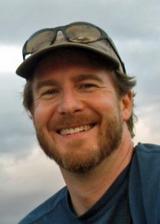
David Post
Professor of Ecology & Evolutionary Biology
Department of Ecology & Evolutionary Biology
David Post’s research tests long-standing questions about food web structure and dynamics, the influence of environmental change on community structure and ecosystem function, spatial linkages among ecosystem, and the importance of interactions between ecology and evolution for community and ecosystem processes. He also develop and apply stable isotope techniques to address questions across ecology and evolutionary biology. Many of the questions addressed and methods developed by the Post Lab have a direct impact on the conservation and management of aquatic resources. Although members of the Post Lab primarily work in aquatic ecosystems, they also study interactions and processes that link aquatic and terrestrial ecosystems.
![]()
![]()

William Rankin
Assistant Professor of History; DUS History of Science & Medicine
History
Bill Rankin’s research focuses on the relationship between science and space, from the territorial scale of states and globalization down to the scale of individual buildings. He is particularly interested in mapping, the environmental sciences and technology, architecture and urbanism, and methodological problems of digital scholarship, spatial history, and geographic analysis (including GIS). Bill is currently working on two book projects. One is a spatial history of the environmental sciences since 1960 that explores the changing relationship between graph-like knowledge and map-like knowledge. The other is a more methodological-theoretical book on mapping and visual communication.
https://history.yale.edu/people/william-rankin
![]()
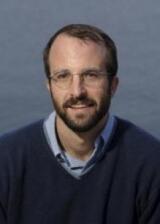
Peter A. Raymond
Professor of Ecosystem Ecology
Yale School of the Environment
The Raymond lab’s research focuses on biogeochemistry of natural systems. In particular, we are interested in the carbon and nitrogen cycles within aquatic systems. Current research topics include the landscape controls on the watershed export of carbon, biogeochemical transformations in estuaries, the physics of air-sea CO2 exchange, nitrogen cycling in temperate watersheds, and determining the age and composition of carbon being transported from land to the ocean. The lab’s research often utilizes the watershed approach and natural isotopes to determine major sources, sinks, and ages of various carbon and nitrogen pools in the natural environment.
https://environment.yale.edu/profiles/expertise/climate-change-and-climate-science
![]()
![]()

Alan Rooney
Assistant Professor
Earth & Planetary Sciences
Alan Rooney is interested in understanding the interactions between tectonics, climatic processes and geochemical cycles on a range of time scales. He uses radiogenic isotope geochemistry, in particular the rhenium-osmium (Re-Os) geochronometer, Sr and Nd isotopes combined with field-based mapping, sedimentology, stratigraphy and mineralogy to interrogate the rock record of critical transitions in Earth history. Rooney’s near term research interests are centered on four main areas: 1) refining Earth history records, especially Proterozoic tectonic reorganizations and eukaryotic diversification, 2) combining geochemical proxies with microfossil and sedimentological analyses to provide better constraints on ice sheet dynamics over the last 5 million years, 3) understanding hydrocarbon systems and ore genesis through the use of geochronology and geochemistry, and 4) integrating the Re-Os geochronometer into the EARTHTIMEorganization and leading an international effort for inter-laboratory standardization.
https://people.earth.yale.edu/profile/alan-rooney/about
![]()
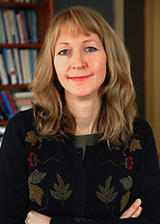
Frances McCall Rosenbluth
Damon Wells Professor of Political Science
Political Science
Frances Rosenbluth is a comparative political economist with current research interests in war and constitutions, Japanese politics and political economy, and the political economy of gender. She has received research support from the Fulbright Commission, the National Science Foundation, the Council on Foreign Affairs, and the Abe Foundation. Her recent and forthcoming books include The Political Economy of Japan’s Low Fertility (edited, Stanford Press, 2007), Women, Work, and Politics (with Torben Iversen, Yale University Press, 2010), Japan Transformed: Political Change and Economic Reform (with Michael Thies, Princeton University Press, 2010), and War and State Building in Medieval Japan (co-edited with John Ferejohn, Stanford University Press, 2010). She is a member of the American Academy of Arts and Sciences, and part of the Presidential Task Force of Yale Carbon Charge.
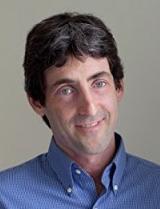
Paul Sabin
Professor of History and American Studies
History
Paul Sabin teaches United States environmental history, energy politics, and political, legal, and economic history. He coordinates the Yale Environmental History working group and the Yale Environmental Humanities Initiative, and helps lead Yale’s undergraduate Environmental Studies major. He is the author of The Bet: Paul Ehrlich, Julian Simon, and Our Gamble Over Earth’s Future (2013), which draws on an iconic story about population and resources to examine the clash between environmentalists and their critics since the late 1960s. His first book, Crude Politics: The California Oil Market, 1900-1940 (2005), explores how politics and law shaped a growing dependence on petroleum in California and the nation. Sabin’s current research examines the evolution and impact of modern environmental law and regulation in the United States. He also has written on international resource frontiers, U.S. overseas expansion, and energy and legal history. Sabin received his Ph.D. in American History in 2000 from the University of California, Berkeley, and spent a postdoctoral year as Harvard-Newcomen Fellow in business history at the Harvard Business School. He also served for nine years as the founding executive director of the non-profit Environmental Leadership Program, which has trained and supported a collaborative network of nearly 1,000 talented public leaders from higher education, government, businesses, and non-profit organizations.
https://history.yale.edu/people/paul-sabin
![]()
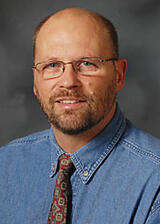
Oswald J. Schmitz
Oastler Professor of Population and Community Ecology, Yale School of the Environment and the Department of Ecology and Evolutionary Biology; Senior Associate Dean of Research & Director of Doctoral Studies, Yale School of the Environment
School of the Environment
Professor Schmitz’s research examines the dynamics and structure of terrestrial food webs. His specific focus is on plant-herbivore interactions and how they are shaped by carnivores and soil-nutrient levels, both at the level of herbivore foraging ecology and plant-herbivore population dynamics. He is also examining how natural systems are resistant and resilient to natural and human-induced disturbances. His approach involves developing mathematical theories of species interactions in food webs and testing these theories through field experiments. The work deals with a variety of ecosystems and herbivore species, ranging from moose deer and snowshoe hare in northern Canadian forests to insects in New England old-field ecosystems.
https://environment.yale.edu/profiles/expertise/climate-change-and-climate-science
![]()
![]()
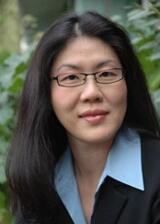
Karen C. Seto
Frederick C. Hixon Professor of Geography and Urbanization Science
School of the Environment
Karen Seto is the Frederick C. Hixon Professor of Geography and Urbanization Science at the Yale School of Forestry and Environmental Studies. She is an urban and land change scientist whose central research focus is how urbanization will affect the planet. A geographer by training, she integrates remote sensing, field interviews, and modeling methods to study urbanization and land change, forecast urban growth, and examine the environmental consequences of urban expansion. She is an expert in satellite remote sensing analysis and has pioneered methods to reconstruct historical land-use and to develop empirical models to explain and forecast the expansion of urban areas. Seto is a specialist in contemporary urbanization in China and India, where she has conducted research for over 20 and 10 years, respectively. Her research is notable for its systematic use of big data and a scientific lens to study urbanization as a process and to understand the aggregate global impacts of urbanization. Seto’s research has generated new insights on the interaction between urbanization and food systems, the effects of urban expansion on biodiversity and cropland loss, urban energy use and emissions, and urban mitigation of climate change.
https://environment.yale.edu/profiles/expertise/climate-change-and-climate-science
![]()
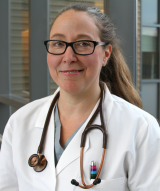
Jodi Sherman
Associate Professor of Anesthesiology and of Epidemiology (Environmental Health Sciences); Director of Sustainability, Dept. of Anesthesiology; Associate Professor of Epidemiology, Environmental Health Sciences; Affiliated Faculty, Climate Change and Health Initiative, School of Public Health
Environmental Health Sciences
Dr. Sherman is an internationally recognized speaker and author in the emerging field of sustainability in health care. Her research interest is in life cycle assessment (LCA) of anesthetic practice, quantifying energy, greenhouse gas emissions, human health impacts, and economic densities of drugs, medical devices, clinical pathways, and staff behaviors, to help guide clinical decision making toward more ecologically sustainable practices. Dr. Sherman collaborates with environmental engineers, epidemiologists and health economists towards this goal, and also Co-Chairs the Environmental Task Force of the American Society of Anesthesiologists. Dr. Sherman is the recipient of the Anesthesia Patient Safety Foundation award for her work, “Environmental and public health impacts of anesthesia alternatives.”
https://publichealth.yale.edu/climate/faculty/jodi_sherman.profile
![]()
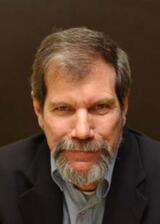
Ronald Smith
Damon Wells Professor of Earth & Planetary Sciences
Earth & Planetary Sciences
Prof. Smith leads Yale’s program in mesoscale meteorology and regional climate. This program includes 1) atmospheric dynamics emphasizing density-stratified fluid dynamics and applied mathematics, 2) observations of the atmosphere using aircraft and satellite, 3) hydrometeorology using stable isotopes of water and theories of evaporation and rain, 4) satellite remote sensing of landscape changes and climate sensitivity. Current projects include: orographic precipitation in the tropics, gravity waves in the stratosphere, satellite analysis of surface climate feedbacks, stable isotope gradients across mountain ranges, mathematical models of dispersion.
![]()
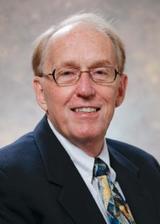
William Summers
Professor Emeritus of Therapeutic Radiology, Molecular Biophysics & Biochemistry, and the History of Medicine
East Asian Studies
Professor William C. Summers’ interests range from molecular biology to Chinese culture and history. A well-published researcher in virology and in the history of science and medicine, Professor Summers earned both his M.D. and his Ph.D. in molecular biology from the University of Wisconsin in 1967. He joined the Yale Faculty in 1968. Professor Summers has held fellowships and visiting faculty positions at major research universities in the United States, Sweden, Great Britain, Singapore, and China; he serves on numerous panels and editorial boards.
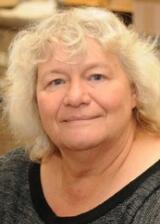
Ellen Thomas
Senior Research Scientist
Earth & Planetary Sciences
Ellen Thomas investigates the impact of changes in environment and climate on living organisms on various time scales, from millions of years to decades, with a focus on benthic foraminifera (eukaryotic unicellular organisms).
https://people.earth.yale.edu/profile/ellen-thomas/about
![]()
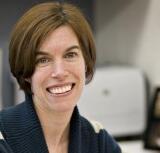
Mary-Louise Timmermans
Professor & Director of Undergraduate Studies
Earth & Planetary Sciences
Mary-Louise Timmermans is a physical oceanographer with a research focus in the Arctic Ocean. She uses a combination of theory, numerical modeling and geophysical observations (from icebreaker surveys and an ice-based network of drifting ocean-profiling instruments) to investigate how the ocean relates to Arctic sea ice and climate. This includes such topics as ocean mixing, eddies and waves, and ocean heat and freshwater transport.
https://people.earth.yale.edu/profile/mary-louise-timmermans/about
mary-louise.timmermans@yale.edu
![]()
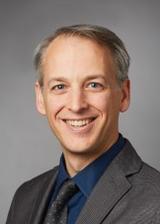
Jeffrey Townsend
Elihu Associate Professor of Biostatistics and Associate Professor of Ecology and Evolutionary Biology
Public Health (Climate Change and Health)
Professor Townsend received his Ph.D. in 2002 in organismic and evolutionary biology from Harvard University, under the advisement of Daniel Hartl. His Ph.D. was entitled “Population genetic variation in genome-wide gene expression: modeling, measurement, and analysis”, and constituted the first population genetic analysis of genome-wide gene expression variation. After making use of the model budding yeast S. cerevisiae for his Ph.D. research, Dr. Townsend accepted an appointment as a Miller Fellow at the University of California-Berkeley in the Department of Plant and Microbial Biology, where he worked to develop molecular tools, techniques, and analysis methodologies for functional genomics studies with the filamentous fungal model species Neurospora crassa, co-advised by Berkeley fungal evolutionary biologist John Taylor and molecular mycologist Louise Glass. In 2004, he accepted his first appointment as an Assistant Professor in the Department of Molecular and Cell Biology at the University of Connecticut. In 2006 he was appointed as an Assistant Professor the Department of Ecology and Evolutionary Biology at Yale University. In 2013 he was appointed as an Associate Professor of Biostatistics in the Yale School of Public Health, and in 2017 he was named Elihu Associate Professor of Biostatistics.
https://publichealth.yale.edu/climate/faculty/jeffrey_townsend.profile
![]()
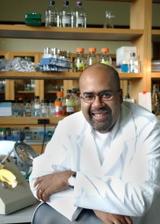
Paul Eugene Turner
Rachel Carson Professor of Ecology & Evolutionary Biology
Public Health (Climate Change and Health)
The Turner group is interested in examining how viruses evolutionarily adapt to overcome new challenges, such as emergence on novel host species, transmission via new arthropod vectors, survival at elevated temperatures, or changes in host immunity. Their work also examines how viruses can be used in phage therapy as an alternative to traditional antibiotics, and in oncolytic therapy against cancers. They employ a wide variety of study systems, including bacteria-bacteriophage studies, and tissue culture experiments using molecular virology models such as vesicular stomatitis virus and Sindbis virus, and disease pathogens such as dengue virus.
https://publichealth.yale.edu/climate/faculty/paul_turner.profile
![]()

Vasilis Vasiliou
Department Chair and Susan Dwight Bliss Professor of Epidemiology (Environmental Health Sciences) and of Ophthalmology and Visual Science
Public Health (Climate Change and Health)
Professor Vasiliou has established an internationally-recognized research program that has been continuously funded by NEI/NIH and NIAAA/NIH since 1997. His research interests include mechanisms of cellular responses to environmental stress, gene-environment interactions, alcohol toxicity, pharmacogenetics and the evolution of gene families. His research focuses on the role of aldehyde dehydrogenases, cytochrome P-450s and glutathione in metabolism and disease (specifically, alcohol-induced tissue injury, diabetes, gout and cancer).
https://publichealth.yale.edu/climate/faculty/vasilis_vasiliou.profile
![]()
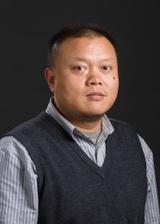
Zheng Wang
Associate Research Scientist
Public Health (Climate Change and Health)
Zheng Wang is Research Scientist at the Department of Biostatistics, Yale School of Public Health, Yale University. After completing a PhD at the Clark University in 2006, he held a post-doctoral fellowship at the University of Iowa. He joined Yale University in 2007, and held a post-doctoral association position at the Ecology and Evolutionary Biology Department. He is an expert on fungal taxonomy, especially classification and taxonomy of the Leotiomycetes, Pezizomycetes, Geoglossomycetes, and wood decay polypores. He is also one of the leading authors in the Assembling the Fungal Tree of Life project. His research is in the field of fungal systematics, fungal evolutionary biology, and fungal genetics and genomics, using field and laboratory experiments with model species and comparative genomics/transcriptomics to understand the effects of natural selection and evolution and development of sexual/asexual reproduction in fungi. In particular, it focuses on the how fungi respond to environmental factors during different stages of their life history. He has served as a reviewer for 34 scientific journals, including all major mycological journals. He has held several editorial appointments, including associate editor of Mycosystema and Mycology, review editor of Frontiers in Ecology and Evolution.
https://publichealth.yale.edu/climate/faculty/wang_zheng.profile
![]()
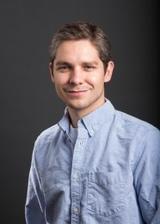
Joshua Warren
Assistant Professor of Biostatistics
Public Health (Climate Change and Health)
Joshua Warren is an assistant professor in the Department of Biostatistics at the Yale School of Public Health. He received his Ph.D. in statistics from North Carolina State University in 2011. Dr. Warren’s research focuses on statistical methods in public health with an emphasis on environmental health problems. Much of his work involves introducing spatial and spatiotemporal models in the Bayesian setting to learn more about associations between environmental exposures, such as air pollution, and various health outcomes including preterm birth, low birth weight, and congenital anomalies. He also has interest in developing and applying spatiotemporal models in collaborative settings such as epidemiology, geography, nutrition, and glaucoma research. His theoretical and methodological interests include multiple topics in spatial/spatiotemporal modeling and Bayesian nonparameterics.
https://publichealth.yale.edu/climate/faculty/joshua_warren.profile
![]()
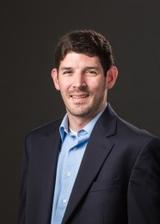
Daniel Weinberger
Assistant Professor
Epidemiology of Microbial Diseases, Public Health (Climate Change and Health)
The research in the Weinberger Lab is at the intersection of microbiology and epidemiology. We focus on understanding the biological and epidemiological drivers of respiratory infections, including pneumococcus, RSV, influenza, and Legionella. Major research areas include understanding the biological drivers of the emergence of rare pneumococcal serotypes following vaccine introduction, developing novel statistical approaches to evaluate vaccine impact from observational data, evaluating the importance of interactions among respiratory pathogens, and understanding environmental drivers of Legionellosis.
https://publichealth.yale.edu/climate/faculty/daniel_weinberger.profile
![]()
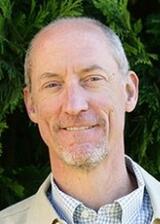
John Wettlaufer
A.M. Bateman Professor of Earth & Planetary Sciences and Professor of Mathematics & Physics
Earth & Planetary Sciences
John Wettlaufer is Professor of Applied Mathematics at Oxford and the A.M. Bateman Professor of Applied Mathematics, Geophysics and Physics at Yale. He is one of the world’s leading authorities on the physics of ice and its role in climate. A Fellow of the American Physical Society and a Guggenheim Fellow, he has held visiting appointments at Cambridge University and the Nordic Institute of Theoretical Physics in Stockholm.
https://physics.yale.edu/people/john-wettlaufer
![]()

Yawei Zhang
Section Chief and Associate Professor of Surgery (Surgical Outcomes and Epidemiology)
Epidemiology of Microbial Diseases, Public Health (Climate Change and Health)
Dr. Zhang’s research focuses on cancer prevention and prognosis, early life exposures, and surgical outcomes. In particular, she has been pioneering the causes of increasing trends of thyroid cancer observed worldwide. As thyroid cancer is the fifth most common cancer among women in the United States, and factors that are responsible for this increasing trend are largely unknown. She is currently leading research activities in these areas as the PI of a population-based case-control study of thyroid cancer in Connecticut and a large nested case-control study of thyroid cancer in the Department of Defense Serum Repository (DoDSR) cohort. Dr. Zhang has been studying a wide array of environmental exposures, lifestyle factors and gene-environment interaction in the etiology and prognosis of non-Hodgkin lymphoma. She plays a major role in the International Lymphoma Epidemiology Consortium (InterLymph), and her research on hair dye use served as key evidence for IARC Monograph. She has also been studying environment factors and gene-environment interactions for multiple myeloma and cancers of the testes, pancreas, lung, liver, breast, and bladder. Currently, she is leading a large project developing novel approaches of monitoring and controlling major cancer risk factors in China.
https://publichealth.yale.edu/climate/faculty/yawei_zhang.profile
![]()
